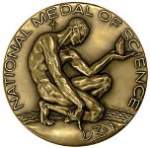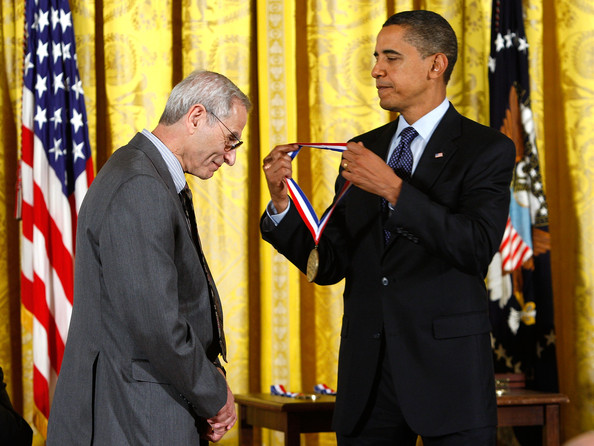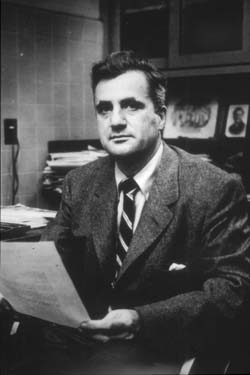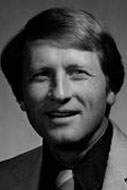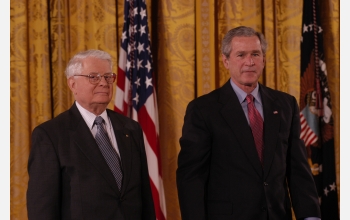Peter Carl Goldmark National Medal of Science Awarded In 1976
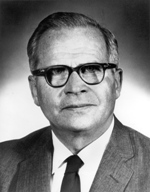
Peter Carl Goldmark
Award Name : National Medal of Science
Year of Award : 1976
Award for : Engineering
Location : Budapest, Budapest, Hungary
Peter Carl Goldmark was a Hungarian-born physicist and engineer
who later became a U.S. citizen, is best known for his invention of the
long-playing record, commonly known as the LP. It revolutionized the recorded
music industry and dominated sales for 40 years. Spending most of his career as
an engineer at CBS, he also contributed to the development of color television,
photocopying, audio cassettes, and the video cassette recorder. Peter Goldmark
was born on December 2, 1906 in Budapest, Hungary. He studied physics at the
University of Vienna, where he received his BS in 1929 and his PhD in 1931, and
began his career working for a radio company in England. In 1933, he emigrated
to the United States and worked as a construction engineer until 1936, when he
joined CBS, or Columbia Broadcasting System, as Chief Engineer of the
Television Department. Goldmark can also be considered the father of video
recording. With the goal of producing a tool for educational media storage, he developed
a system called electronic video recording (EVR). This futuristic home video
playback device used reels of film stored in plastic cassettes to
electronically store audio and video signals, and was first announced in 1967.
A B&W prototype was demonstrated in 1969, but the invention floundered when
it proved to be difficult and costly to manufacture.[3] On November 22, 1977,
President Jimmy Carter presented Goldmark with the National Medal of Science.
He died in an automobile accident on December 7, 1977
